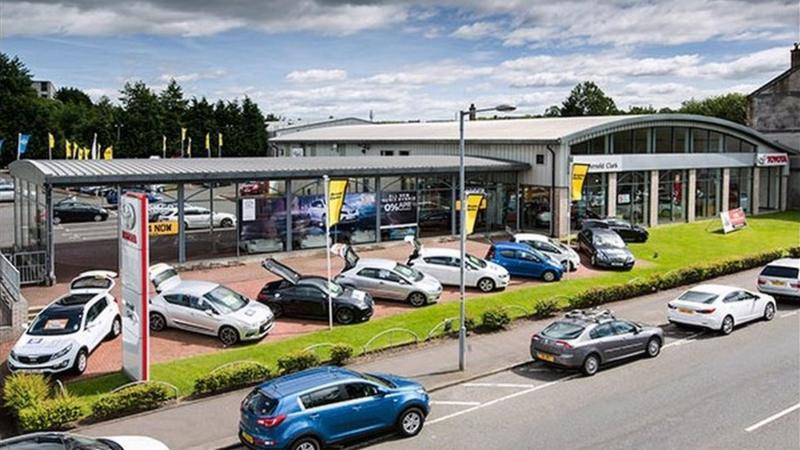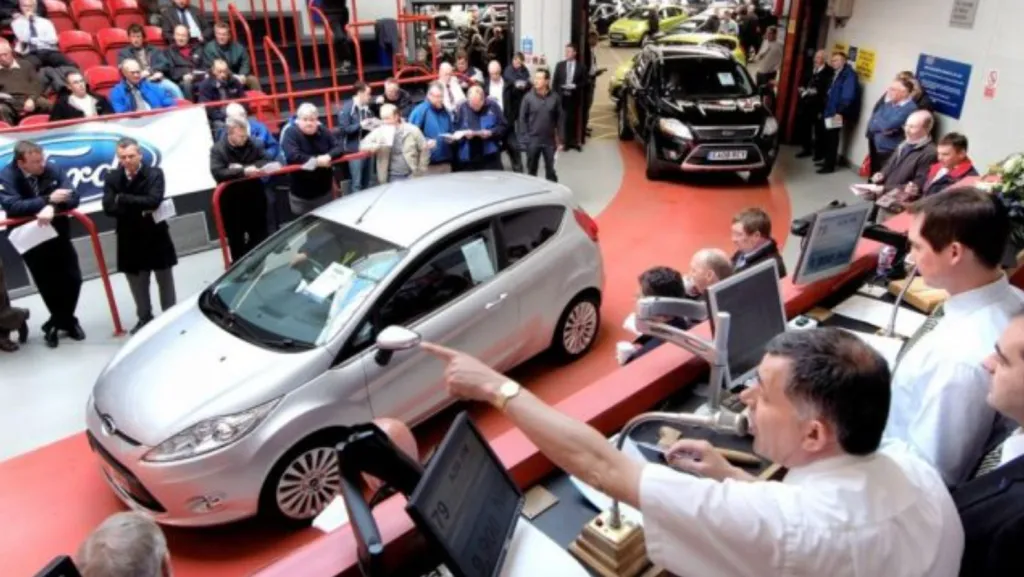This advice is taken from the RAC website
Buying a used car could save you a fortune over the equivalent brand new model, but there are risks involved too.
A great amount of care needs to be taken to ensure you make the right purchase and aren't sold something that could come back to haunt you.
Our definitive guide offers all the help you need to help you buy with confidence and get the right deal, too.
The following advice will cover every step of the car-buying journey from choosing where to buy from to what to check when you view the car to how to handle negotiations and your buyer's rights.

You’ve decided you want to buy a used car, but where should you buy it from?
We look through the advantages and disadvantages of different seller types, citing things to look out for and where to go to best suit your needs.
1. Buying a used car from a dealer, independent garage or driveway trader
If you’re nervous about buying a secondhand car, a dealer or trader is an easier place to start as buying privately often requires more car knowledge.
Firstly, lets understand what the concept of a trader means, as it can vary dramatically.
A trader is defined as a person acting for purposes relating to that person’s trade, business, craft or profession, meaning they can range from a single person buying and selling cars on their driveway, to a franchised dealer selling new and nearly-new cars.
The difference between these traders is the level of preparation and aftersales support you will get and also the cost you will have to pay for these premiums - the bigger the business, the more resource they have, but also the more overheads they have to pay too, which will bump up your costs.
Franchised dealers are at the largest end of the spectrum, with one-man-band driveway traders at the other and usually independent garages sitting somewhere in the middle.
Things to consider
A main dealer or garage is likely to have put a used car through a rigorous inspection and offer a good warranty (usually six or 12 months).
While this will come at a price - increasing the outright cost of buying the car - it can offer you priceless peace of mind in knowing the car has been thoroughly checked out and is covered by a warranty.
Buying from a driveway trader could save you these higher up front costs, but may prove to be a false economy as the car could end up costing you more in repairs - it's likely this person has done little more than give the car a quick wash after picking it up from a used car auction in order to flip it for a quick profit.
While all traders legally have to comply with the Consumer Rights Act - meaning you may be entitled to a repair, replacement or refund if the vehicle is deemed not ‘fit for purpose’ or ‘of satisfactory quality’ - acting on this could prove to be a headache if the seller is unscrupulous.
You may have to act fast as your right to reject the vehicle and claim a full refund because of a fault is usually restricted to the first 30 days and what you’re entitled to varies following the expiration of this date.
It is also worth noting that under the provisions of the Road Traffic Act 1988, no person can sell a motor vehicle or trailer in an unroadworthy condition, you can read more about that in our buyer's rights section.

How to decide
Consider what you're looking for and what you need the car for.
If the car is an investment - your family car, perhaps, for the next 10 years - it might make sense to pay for the security you get from a garage.
But if it is perhaps an in-between runabout for £1000, and upfront cost is your biggest factor, it might make sense to sacrifice the guarantees for the cheapest possible price.
Independent garages can vary in size (and quality), but usually cater for the middle ground of car sales - i.e. vehicles too old for main dealers, but not yet in the bargain bangers territory.
The advantage of independent garages is they often care about their reputation, and a search online can reveal how happy previous customers are.
Be cautious, though, as some won’t necessarily have done a great deal of work to prepare cars for sale, and be sure to read the terms and conditions of any warranty they offer - they’re not always worth the paper they’re written on.
If you decide to buy from a dealer, our approved dealer network can help you buy with confidence.
2. Buying a used car privately
If you’re on a budget, buying a secondhand car privately can prove to be a much cheaper option than visiting a dealer, but is it the best thing to do?

3. Buying a used car from auction
Many buyers are (sometimes rightly) cautious about buying a car from auction.
Vehicles passing under the hammer are usually being sold for a quick sale, and come with little in the way of protection such as a warranty.
Buy carefully, however, and you could grab a bargain.
Things to consider for first-time auction buyers
Most auction houses allow a few hours of browsing before the sale, so get to the auction early and don’t be afraid of poking around any prospective purchases.
Do your research beforehand, too - how much would similar cars sell for privately or at a dealer, and how much have they sold for at previous auctions?
Once you’ve got a shortlist of cars, set a strict budget.
Give it a good look over for the general condition - this can give you a good idea of how well it’s been maintained and whether it’s likely to be a dud.
A cosmetically rough car is more likely to be hiding costly issues than a tidy example.
When the car passes through the auction hall, listen to the engine and look carefully for any signs that it might not be running right.
If you decide to bid, hold your nerve and don’t get carried away with the moment.
Remember than auction houses usually add fees on top - find out what they are beforehand, to save any nasty surprises once you’ve bid.

 Lorem ipsum dolor sit amet, consectetur adipiscing elit. Curabitur fringilla, nulla at placerat auctor, orci sapien rutrum mauris, ac aliquam nibh ex vel erat. Ut interdum rutrum massa. Duis a dui libero. Vivamus interdum venenatis scelerisque.
Lorem ipsum dolor sit amet, consectetur adipiscing elit. Curabitur fringilla, nulla at placerat auctor, orci sapien rutrum mauris, ac aliquam nibh ex vel erat. Ut interdum rutrum massa. Duis a dui libero. Vivamus interdum venenatis scelerisque.
 Quisque vulputate imperdiet ultrices. Interdum et malesuada fames ac ante ipsum primis in faucibus. Suspendisse molestie ex vitae risus condimentum auctor. Quisque quis ipsum consectetur, commodo leo a, accumsan felis. Pellentesque eget mauris mollis, mattis urna eget, dignissim dolor. Donec sagittis molestie urna, suscipit lobortis erat tincidunt ac.
Quisque vulputate imperdiet ultrices. Interdum et malesuada fames ac ante ipsum primis in faucibus. Suspendisse molestie ex vitae risus condimentum auctor. Quisque quis ipsum consectetur, commodo leo a, accumsan felis. Pellentesque eget mauris mollis, mattis urna eget, dignissim dolor. Donec sagittis molestie urna, suscipit lobortis erat tincidunt ac.
 Duis sodales dui in elit fermentum fringilla. Nulla accumsan urna in tristique malesuada. Vestibulum ante ipsum primis in faucibus orci luctus et ultrices posuere cubilia curae; Vestibulum ex ligula, placerat vitae aliquam a, feugiat ac quam. Morbi sed pulvinar ipsum. Nunc in augue vulputate purus consequat lobortis eu ut augue.
Duis sodales dui in elit fermentum fringilla. Nulla accumsan urna in tristique malesuada. Vestibulum ante ipsum primis in faucibus orci luctus et ultrices posuere cubilia curae; Vestibulum ex ligula, placerat vitae aliquam a, feugiat ac quam. Morbi sed pulvinar ipsum. Nunc in augue vulputate purus consequat lobortis eu ut augue.
 Nunc in augue vulputate purus consequat lobortis eu ut augue. Aenean leo nibh, egestas sit amet nisi non, sodales egestas nulla. Aenean dolor ipsum, ultrices id feugiat id, convallis vel nunc. Quisque malesuada ex vel lectus aliquet tempus. Donec quis nisi in metus convallis posuere. Ut luctus egestas ex, nec fermentum libero posuere vel.
Nunc in augue vulputate purus consequat lobortis eu ut augue. Aenean leo nibh, egestas sit amet nisi non, sodales egestas nulla. Aenean dolor ipsum, ultrices id feugiat id, convallis vel nunc. Quisque malesuada ex vel lectus aliquet tempus. Donec quis nisi in metus convallis posuere. Ut luctus egestas ex, nec fermentum libero posuere vel.


